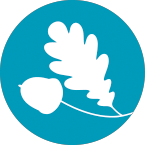Curriculum Delivery
Curriculum Implementation
The delivery of the curriculum and pedagogical practice across the school is communicated as non-negotiable. Employing effective pedagogy approaches enables children to reach their full potential and provides a strong foundation for learning.
The curriculum is planned to ensure there is progression across the whole of the primary school, including the Early Years Provision. Key principles in the curriculum are taught through three main approaches:
- talk led approach
- active approach-discovering learning
- collaborative approach
We encourage pupils to ask questions and want them to understand how to think and speak like a historian, for example. Instilling that sense of curiosity stems from the children’s experiences that we provide as part of their learning.
What does a lesson look like?
The curriculum builds on children’s ability to learn at a deeper level, allowing them to articulate their learning, apply their knowledge, and demonstrate high-quality thinking.
Knowledge goals are shared with the children during each lesson, which is the knowledge that we feel is important for the children to learn and is taken from the existing curriculum. Relevant vocabulary is introduced for the children to be able to remember and apply and is shared via subject displays or Knowledge Organisers (a resource used to support learning in class).
English lessons are driven by high quality, enjoyable texts as models for wider reading, comprehension and writing, while maths lessons encourage fluency but also a deeper, conceptual understanding, helping them solve a range of routine and non-routine problems.
Staff plan for the needs of individuals by adapting and personalising learning. High quality teaching underpins this with targets that challenge the children but are achievable.
Equality of opportunity and diversity, Fundamental British Values as well as our own Core Values are promoted throughout the school through a range of school trips, displays, the curriculum, theme days, assemblies and through the Rights Respecting Schools Award.
Curriculum Impact
At Merrylands Primary School and Nursery, we use a wide range of monitoring strategies throughout the year to measure the impact of the curriculum content, design, and approach. This is used to identify if children are able to remember what they have been taught and how well they are progressing through the curriculum.
Leadership at all levels monitor individual subjects: reviewing learning, evaluating pupils' voice, providing individual feedback to move practice forward, celebrating positives and highlighting areas of development.
Teachers use assessment for learning strategies to evaluate, adjust, and maximise the impact of the curriculum on pupil outcomes. This means teachers can be confident that children have a sound understanding of a subject before moving on to the next topic; they know when and how to best challenge their thinking and can provide support when necessary.
All staff work collaboratively to reflect upon the curriculum and share outcomes driving forward next steps. We take into consideration the outcomes of various monitoring activities together with available summative assessment information.
